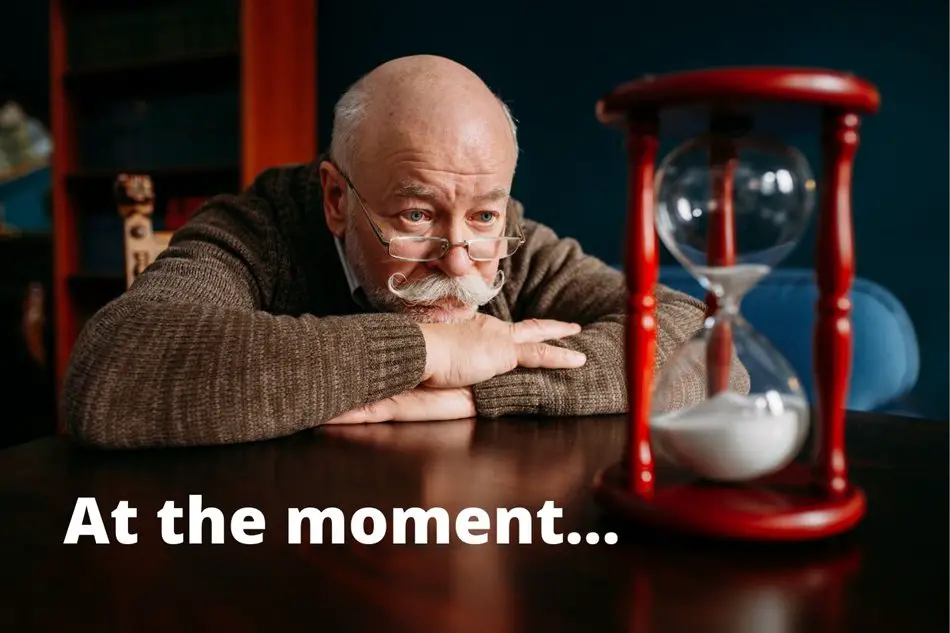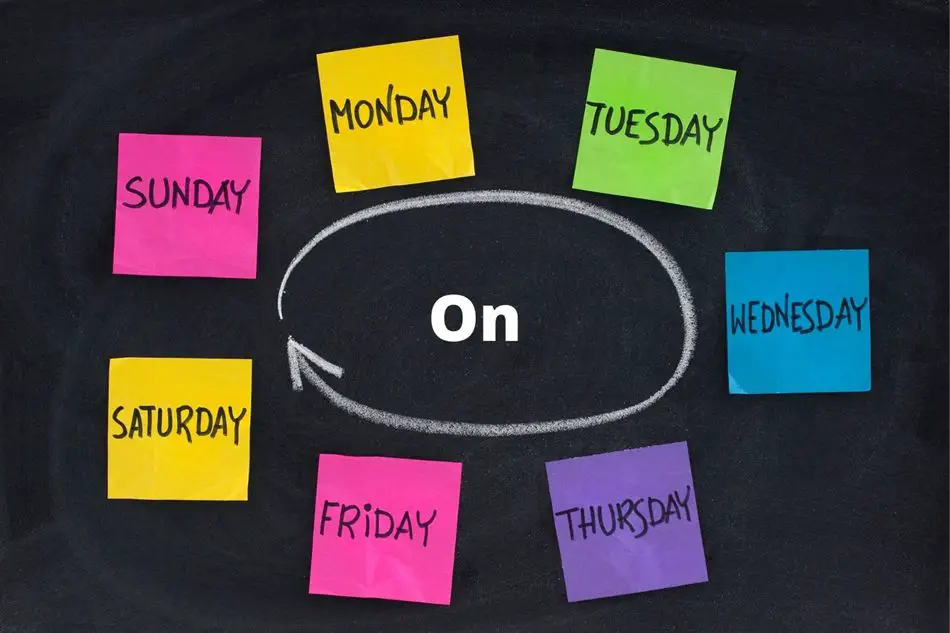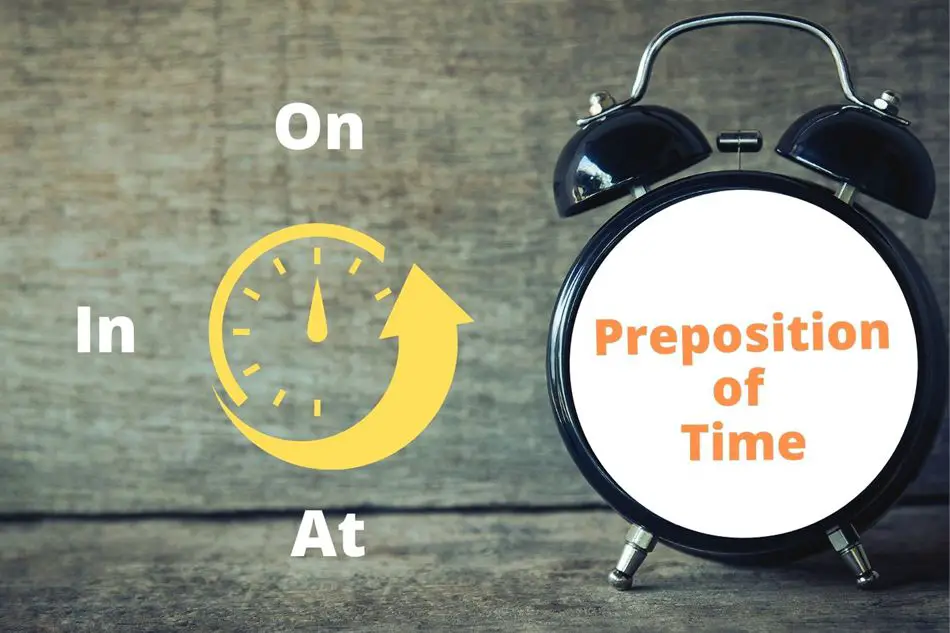This article covers the following areas
- At is used for clock times
- At is used for any specific time of the day
- At is used for specific points in time
- At is used for holidays or festivals
- On is used for any day of the week
- On is used for any date of the month
- On is used for any special day
- In is used for any month of the year
- In is used for any season
- In is used for any year
- In is used for the century
- In is used for general times of the day
- In is used for a long/extended time
- No preposition for last, next, this, every, today & yesterday
- Final Note
- Let’s Practice Now – Quiz
- Frequently Asked Questions
The correct use of prepositions of time “at,” “on,” and “in” playss a significant role in making your sentences correct, clear, and precise. Whether you’re arranging a meeting, describing an event, or planning a trip, using the right preposition of time is key to effective and accurate communication. Let’s dive into how to use “at,” “on,” and “in” correctly with examples and tips.

Generally, the preposition of time “at” is used for specific times (e.g., at 5 PM), “on” is for days and dates (e.g., on Monday, on July 4th), and “in” is for longer periods like months, years, and seasons (e.g., in June, in 2023, in winter).
| Use of “At” | Use of “On” | Use of “In” |
| We usually use “At” for a specific time of day and any particular day, such as a holiday or festival. | We usually use “On” for all the seven days of the week and any specific date of a calendar. | We usually use “In” for any month, year and season. |
Though prepositions are one of the significant parts of speech that we use in most sentences, I find many of my students make mistakes in using prepositions. I have already mentioned the primary uses of prepositions of time in the above table.
However, there are some other uses too. In this post, I will share some essential rules and relevant examples for each rule that will surely help you learn prepositions of time: At, On, and In.
At is used for clock times
We use “at” to talk about specific clock times, like “at 5 o’clock” or “at 3 PM.” This preposition helps to specify the exact time an event occurs.
Examples:
- Anne called me at 5 o’clock.
- They left at 3 PM.
- The meeting is at 2 PM.
- Dinner is at 7 o’clock.
- We will arrive at noon.
- The show starts at midnight.
- I wake up at 6 AM.
- The shop closes at 9 PM.
Using “at” with clock times makes your meaning clear. It helps everyone understand exactly when an event takes place. Always use “at” for precise times to communicate effectively.
At is used for any specific time of the day
We use “at” to talk about specific times of the day, like “at lunchtime” or “at night.” This preposition helps to specify the exact time an event occurs.
Examples:
- Ruana will meet us at lunchtime.
- He will text me at night.
- She goes jogging at dawn.
- We have breakfast at sunrise.
- The party starts at dusk.
- The store opens at noon.
- He studies at midnight.
- They go to bed at sunset.
Using “at” for specific times of the day clarifies your meaning. It helps everyone understand exactly when an event takes place. Always use “at” for precise times to communicate effectively.
| Note: Noon, lunchtime, dinnertime, bedtime, sunrise, sunset, night, etc., are the words that take “At” before them. Exception: The words “morning,” “afternoon,” and “evening” do not take “At” before them, though they refer to a specific time of a day. I will talk about them in the latter part of the post. |
At is used for specific points in time

We use “at” to talk about specific points in time, like “at lunchtime” or “at night.” This preposition helps to specify the exact moment an event occurs.
Examples:
- Ruana will meet us at lunchtime.
- He will text me at night.
- She goes jogging at dawn.
- We have breakfast at sunrise.
- The party starts at dusk.
- The store opens at noon.
- He studies at midnight.
- They go to bed at sunset.
Using “at” for specific points in time makes your meaning clear. It helps everyone understand exactly when an event takes place. Always use “at” for precise times to communicate effectively.
| Note: The moment, the end, the start, the same time, etc., are the phrases that take “At” before them. |
At is used for holidays or festivals
We use “at” to talk about holidays or festivals, like “at Christmas” or “at Easter.” This preposition helps to specify the exact time these events occur.
Examples:
- We decorate the house at Christmas.
- She visits her family at Thanksgiving.
- They go to church at Easter.
- We have a big dinner at New Year’s Eve.
- He enjoys the fireworks at Diwali.
- They exchange gifts at Hanukkah.
- We celebrate together at Ramadan.
- The town has a parade at Independence Day.
Using “at” for holidays or festivals makes your meaning clear. It helps everyone understand exactly when an event takes place. Always use “at” for precise times to communicate effectively.
| Note: Some native speakers of English also prefer using “On” before holidays and festivals. I will talk about it in the next part of the post. |
On is used for any day of the week

We use “on” to talk about specific days of the week, like “on Monday” or “on Friday.” This preposition helps to specify the exact day an event occurs.
Examples:
- We have a meeting on Monday.
- She takes yoga classes on Tuesday.
- They go shopping on Wednesday.
- He plays soccer on Thursday.
- We watch movies on Friday.
- They go hiking on Saturday.
- We visit our grandparents on Sunday.
Using “on” for any day of the week makes your meaning clear. It helps everyone understand exactly when an event takes place. Always use “on” for specific days to communicate effectively.
| Note: We also use “On” before, “Thursday night,” “Saturday morning,” “Friday evening,” etc. |
On is used for any date of the month
We use “on” to talk about specific dates of the month, like “on July 4th” or “on December 25th.” This preposition helps to specify the exact date an event occurs.
Examples:
- We celebrate Independence Day on July 4th.
- She has a dentist appointment on March 15th.
- They will get married on June 21st.
- He has an exam on October 10th.
- We plan to travel on December 1st.
- The festival starts on August 25th.
- She was born on April 2nd.
- The event is scheduled on November 11th.
Using “on” for any date of the month makes your meaning clear. It helps everyone understand exactly when an event takes place. Always use “on” for specific dates to communicate effectively.
On is used for any special day
We use “on” to talk about specific special days, like “on Victory Day” or “on my birthday.” This preposition helps to specify the exact special day an event occurs.
Examples:
- We’ve decided to launch the new product on Victory Day.
- I will publish my next book on my birthday.
- My parents send me gifts on Christmas Day.
- They celebrate their anniversary on Valentine’s Day.
- We honor veterans on Memorial Day.
- She throws a party on her graduation day.
- They hold a parade on Independence Day.
- We give thanks on Thanksgiving Day.
Using “on” for any special day makes your meaning clear. It helps everyone understand exactly when an event takes place. Always use “on” for specific special days to communicate effectively.
In is used for any month of the year
We use “in” to talk about specific months of the year, like “in January” or “in December.” This preposition helps to specify the exact month an event occurs.
Examples:
- We go skiing in January.
- She has a holiday in February.
- They plant flowers in March.
- He starts his new job in April.
- We celebrate Mother’s Day in May.
- The concert is in June.
- They have a family reunion in July.
- We travel abroad in August.
- School starts in September.
- She runs a marathon in October.
- They move to a new house in November.
- We decorate the house in December.
Using “in” for any month of the year makes your meaning clear. It helps everyone understand exactly when an event takes place. Always use “in” for specific months to communicate effectively.
In is used for any season
We use “in” to talk about specific seasons, like “in winter” or “in spring.” This preposition helps to specify the exact season an event occurs.
Examples:
- I love to visit my grandparents’ place in winter.
- Different flowers bloom in spring.
- We go swimming in summer.
- The leaves change color in autumn.
- He enjoys skiing in winter.
- They have a picnic in spring.
- We travel a lot in summer.
- She likes to read books in autumn.
Using “in” for any season makes your meaning clear. It helps everyone understand exactly when an event takes place. Always use “in” for specific seasons to communicate effectively.
In is used for any year
We use “in” to talk about specific years, like “in 2019” or “in 2000.” This preposition helps to specify the exact year an event occurs.
Examples:
- My younger brother started learning guitar in 2019.
- Jhohan was born in 2000.
- They moved to a new city in 2015.
- She graduated from college in 2021.
- We traveled to Europe in 2018.
- The company was founded in 1990.
- He started his job in 2005.
- The project was completed in 2022.
Using “in” for any year makes your meaning clear. It helps everyone understand exactly when an event takes place. Always use “in” for specific years to communicate effectively.
In is used for the century
We use “in” to talk about specific centuries, like “in the 19th century” or “in this century.” This preposition helps to specify the exact century an event occurs.
Examples:
- The novel became a popular genre of literature in the 19th century.
- Many social media platforms have flourished in this century.
- Significant technological advancements were made in the 20th century.
- Classical music thrived in the 18th century.
- Great empires rose and fell in the 16th century.
- Modern art movements began in the 20th century.
- The Renaissance period peaked in the 15th century.
- Major scientific discoveries happened in the 17th century.
Using “in” for the century makes your meaning clear. It helps everyone understand exactly when an event takes place. Always use “in” for specific centuries to communicate effectively.
In is used for general times of the day

We use “in” to talk about general times of the day, like “in the morning” or “in the evening.” This preposition helps to specify the broad time period an event occurs.
Examples:
- I like to jog in the morning.
- We study in the afternoon.
- She reads books in the evening.
- They enjoy watching TV in the night.
- He exercises in the early morning.
- We have meetings in the late afternoon.
- She prepares dinner in the evening.
- They relax in the late night.
Using “in” for general times of the day makes your meaning clear. It helps everyone understand exactly when an event takes place. Always use “in” for broad time periods to communicate effectively.
In is used for a long/extended time
We use “in” to talk about long or extended periods of time, like “in the past” or “in the future.” This preposition helps to specify the broad time span an event occurs.
Examples:
- He was more active in the past.
- I will never make this mistake in the future.
- We are living in an era of technology.
- T.S. Eliot was a significant poet in the modern age.
- Major historical events happened in ancient times.
- Innovations will continue to grow in the coming years.
- Many changes occurred in the Renaissance period.
- Life was different in medieval times.
Using “in” for long or extended times makes your meaning clear. It helps everyone understand exactly when an event takes place. Always use “in” for broad time spans to communicate effectively.
No preposition for last, next, this, every, today & yesterday
We do not use prepositions for expressions like “last,” “next,” “this,” “every,” “today,” and “yesterday.” These words specify the time without needing a preposition.
Examples:
- I went to Dhaka last month.
- Billie will apply for a new job next year.
- She called me this morning.
- My niece goes to school every day.
- We have a meeting today.
- He arrived yesterday.
Omitting prepositions with these time expressions makes your meaning clear and concise. It helps everyone understand exactly when an event takes place. Always use these expressions without prepositions to communicate effectively.
Final Note
Prepositions of time and place are considered the two most difficult areas for ESL learners to master. Yet, I expect the above discussion on “At,” “On,” and “In” will help you master the use of prepositions of time correctly.
I hope the discussion will help you to understand everything about the use of prepositions of time: at, on, and in.
Thanks for reading.
Happy learning!
Let’s Practice Now – Quiz
Frequently Asked Questions
The preposition ‘at’ is used to specify precise times. Examples include “at 5 o’clock,” “at noon,” and “at midnight.” It is also used for holidays without “day” such as “at Christmas.”
The preposition ‘on’ is used for days and dates. Examples include “on Monday,” “on July 4th,” and “on Christmas Day.” It specifies exact days or dates when events happen.
The preposition ‘in’ is used for longer periods such as months, years, centuries, and parts of the day. Examples include “in April,” “in 2023,” and “in the morning.”
‘At night’ refers to the general time of night, usually after sunset and before sunrise. ‘In the night’ refers to a specific moment during the night, often implying an event that occurs within that time frame.
‘At’ is generally not used with parts of the day, except for specific times such as “at noon” and “at midnight.” For other parts of the day, use ‘in’ or ‘on,’ depending on the context.
Use ‘on’ with days of the week to specify when something happens. Examples include “on Monday,” “on Friday evening,” and “on weekends.” This helps to indicate the exact day.
Use ‘in’ with time periods longer than a day. Examples include “in June,” “in the 21st century,” and “in the summer.” It helps to denote broader time frames.
Use ‘at’ for holidays without ‘day,’ such as “at Christmas” or “at Easter.” Use ‘on’ for holidays with ‘day,’ such as “on Christmas Day” or “on New Year’s Day.”
‘At’ is used for specific times to indicate precise moments. Examples include “at 3 PM,” “at dawn,” and “at lunchtime.” This helps in pinpointing exact times of events.
Common errors include using ‘on’ instead of ‘at’ for precise times, or ‘at’ instead of ‘in’ for months and years. Remembering the specific uses of ‘at,’ ‘on,’ and ‘in’ helps avoid mistakes.







